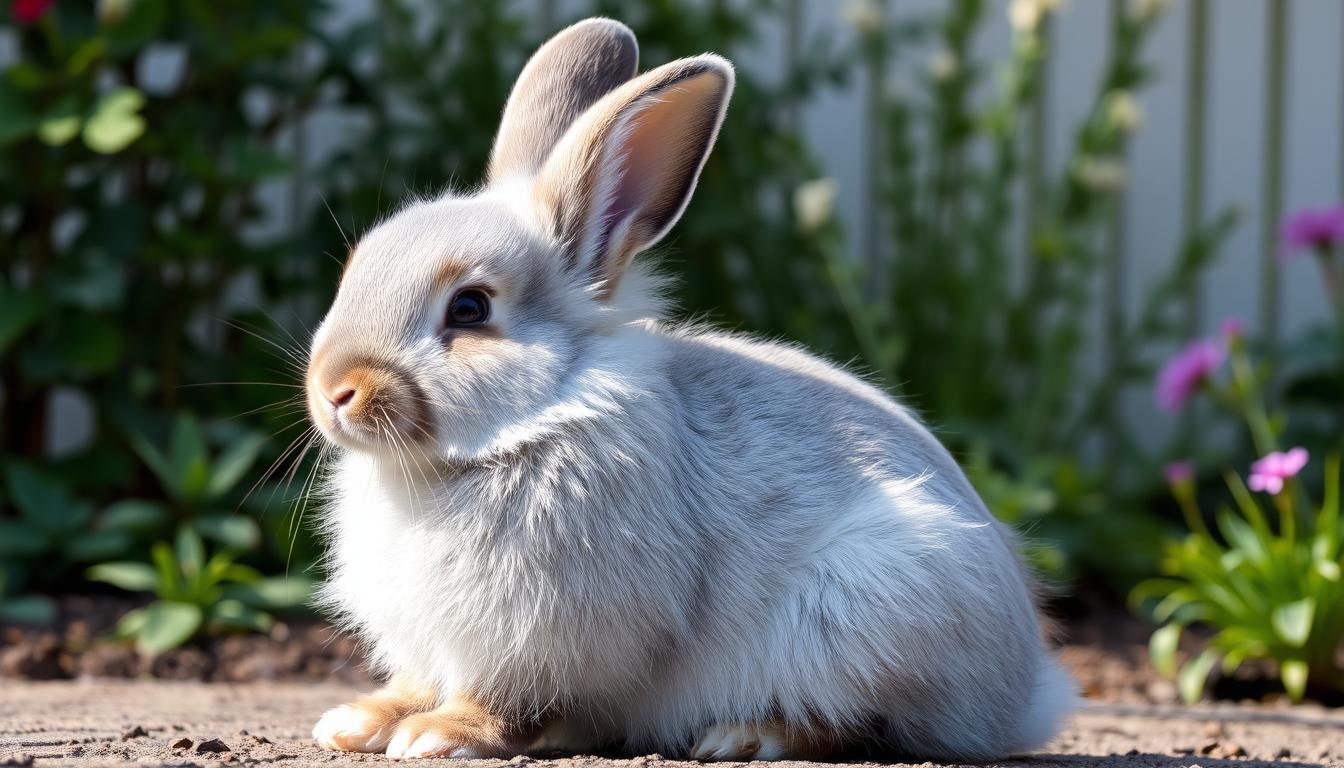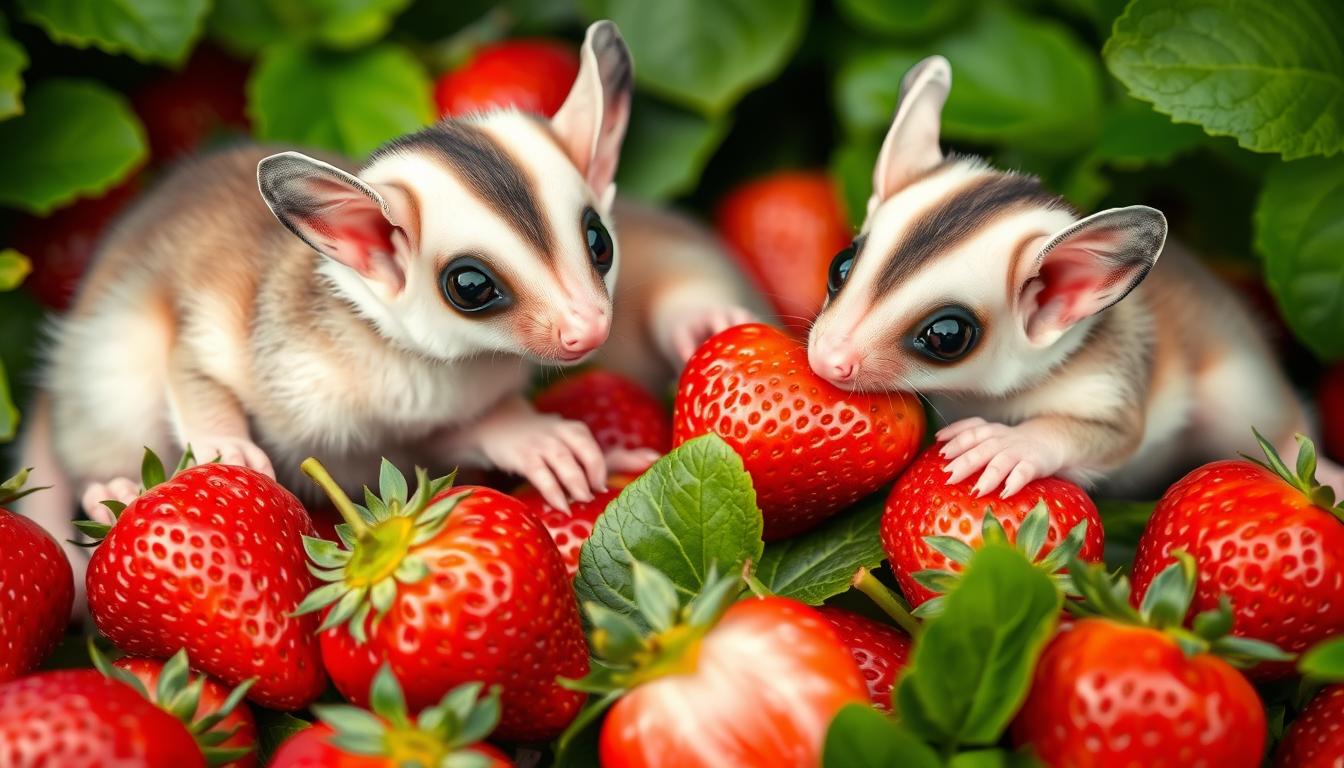Cinnamon Cockatiel: Beautiful Pet Bird Guide
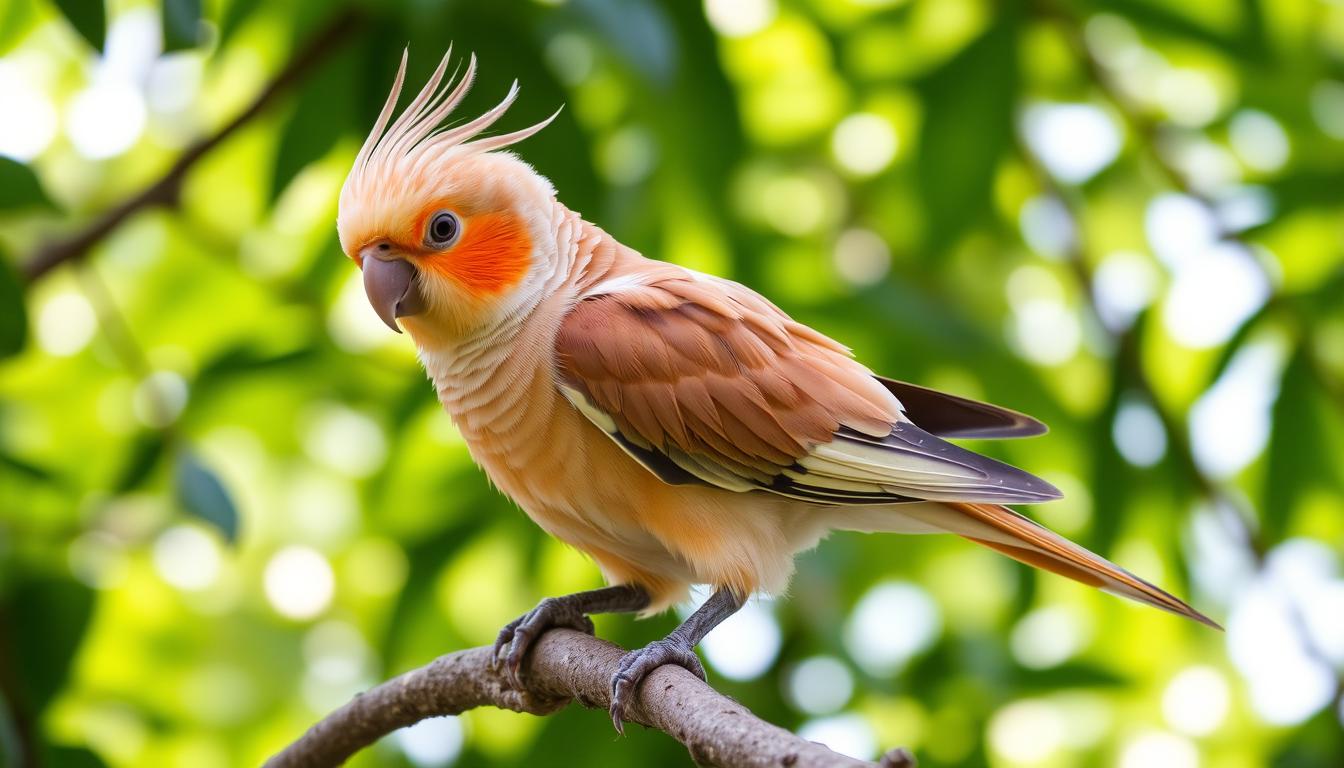
Did you know cinnamon cockatiels can grow up to 12 inches long and weigh 3 to 4 ounces? These birds, from the family Cacatuidae, are known for their striking looks. They come from Australia and are also called Isabelle cockatiels. Their color comes from a special genetic change that affects their feathers.
This guide will cover key points about owning a pet bird. We’ll talk about care, diet, lifespan, personality, breeding, and where to find them. If you’re thinking of getting one, cinnamon cockatiels can bring joy and friendship into your home. Learn more about these amazing birds and why they’re so popular among pet bird lovers. For more on pet ownership, check out this resource on adorable pets that shows the joy they bring1.
Key Takeaways
- The cinnamon cockatiel is a delightful pet due to its friendly nature.
- They are easy to care for, making them ideal for both new and experienced bird owners.
- Understanding their social behaviors can enhance your bond with them.
- Proper nutrition and environment are crucial for their overall health.
- Cinnamon cockatiels are available in various color mutations, increasing their appeal.
Introduction to the Cinnamon Cockatiel
The cinnamon cockatiel is a beloved pet bird known for its friendly and playful nature. These birds can grow up to 12 inches (30 cm) and weigh 3 to 4 ounces. They make great companions for bird lovers23. With proper care, they can live for 15 to 25 years, making them a long-term friend4.
Cockatiels are famous for their vibrant colors, including the cinnamon variety. They are popular pets because of their beauty. Breeding them is rewarding, as they lay eggs every other day until they have five eggs. The eggs incubate for 17 – 22 days2. Finding cinnamon pearl cockatiels might take some effort, but it’s worth it3.
Before getting a cinnamon cockatiel, it’s important to know how to care for it. This includes daily interaction, the right cage size, and keeping their minds active4. Learning about their needs ensures a happy and fulfilling relationship with your new feathered friend.
Unique Characteristics of the Cinnamon Cockatiel
The cinnamon cockatiel is special because of its unique look and friendly nature. They have beautiful cinnamon colors and unique markings. These traits make them stand out.
Their color comes from a genetic change that affects melanin. This results in a lovely tan to cinnamon shade. Males have bright yellow faces and orange cheeks. Females have paler orange cheeks and a less noticeable crest.
Coloration and Markings
The cinnamon cockatiel’s colors and markings are truly stunning. They have red feathers due to a change in black pigment. This makes them look striking and rare.
If you’re thinking about getting one, you can learn more about their looks and care here5.
Size and Weight
The cinnamon cockatiel is about 12 to 14 inches tall. This fits within the expected size for cockatiels. They usually weigh between 2 to 4 ounces, making them light and agile.
It’s important to know their size and housing needs for their health. These details help ensure they have enough space and a good environment to live in6.
| Characteristic | Description |
|---|---|
| Cinnamon Cockatiel Height | 12 to 14 inches |
| Cockatiel Weight | 2 to 4 ounces |
| Coloration | Cinnamon hue with distinctive markings |
| Male Features | Bright yellow faces with vibrant orange cheeks |
| Female Features | Paler orange cheeks and subtler crest |
Cinnamon Cockatiel Care
Proper care is key for your cinnamon cockatiel’s health and happiness. You need to know about cage needs and socialization. These are crucial for your pet’s well-being.
Cage Requirements
Choosing the right cage is important. It should be at least 24 inches wide and 30 inches long7. The bars should be no more than 3/4 inches apart to avoid escapes or accidents8.
Offer different perches for climbing and foot health. This keeps your pet active and happy.
Cleaning the cage regularly is a must. Clean it two to three times a week and do a deep clean once a month with bird-safe cleaners8. Keep food and water above perches to avoid contamination from droppings7.
Socialization Needs
Socialization is vital for your cockatiel’s happiness. These birds love to interact with people or other birds. Daily interaction helps prevent behavioral problems.
Engage with your cockatiel through talking, playing, or letting them explore. This boosts their social skills and keeps them happy8.
Cinnamon Cockatiel Diet Essentials
A well-planned cinnamon cockatiel diet is key to your pet’s health and happiness. Focus on the types of food and avoid common mistakes. This ensures your bird gets the best nutrition.
Recommended Foods
For a healthy diet, mix high-quality pellets, fresh veggies, and fruits. A good mix includes:
- Carrots
- Spinach
- Bananas
- Apples
- Cabbage (with caution due to oxalic acid)
Organic pellets should be 45% of your bird’s diet, with fresh produce also at 45%. Seed mixes should only be 10% due to their high fat and poor quality additives9.
10. Fresh water is always important. While offering a variety of foods is good, avoid toxic items like chocolate, avocado, and high-salt foods.
Common Dietary Mistakes
Many owners let their birds eat too many seeds. This can cause serious health issues and nutritional problems. Common mistakes include:
- Ignoring the need for a diverse diet
- Over-relying on fortified seed mixes
- Failing to provide adequate fresh fruits and vegetables
Look out for signs of health problems like lethargy or ruffled feathers. These could mean your bird isn’t getting the right food. Start a healthier diet by adding a homemade seed mix with fresh, organic grains. This helps meet their dietary needs and promotes a balanced diet.
Cinnamon Cockatiel Lifespan and Health
The average cinnamon cockatiel lives from 10 to 14 years. Some can live up to 24 years with the right care11. Advances in medicine and better nutrition help many cockatiels live into their late twenties12.
To live a long life, they need proper health maintenance. A balanced diet is key. This includes seeds, pellets, fresh veggies, and proteins12.
Regular health checks are important. They help catch issues like respiratory problems and nutritional deficiencies. Make sure they have enough space; a cage of 2 feet x 2 feet x 3 feet is a good start11. They also need 10 to 12 hours of sleep a night for their health12.
Bad care can shorten their life to 1 to 5 years12. So, watching for illness signs and feeding them a varied diet is crucial. For minks and other exotic pets, knowing their health needs is important. You can learn more about their care here.
Cinnamon Cockatiel Personality Traits
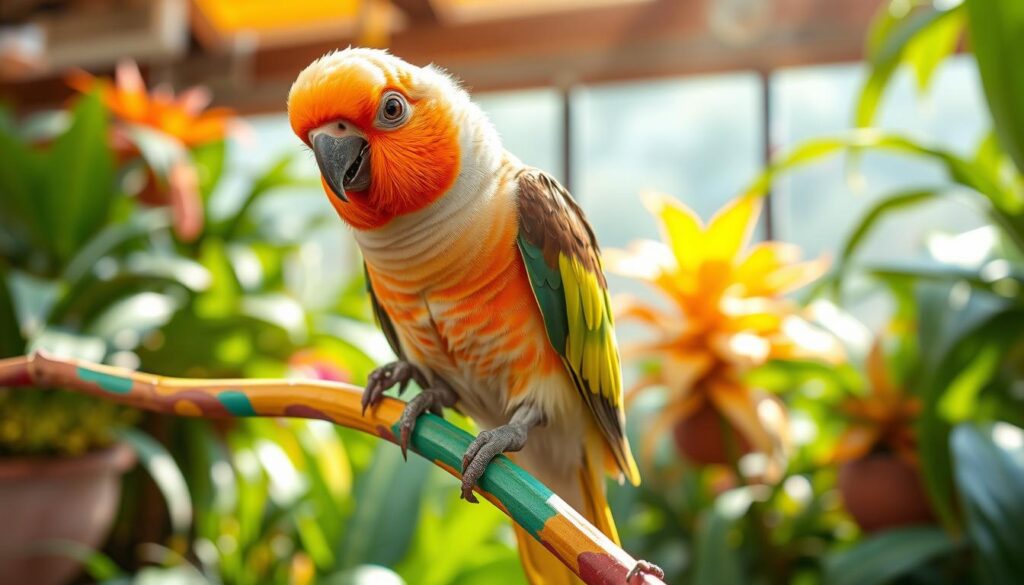
Cinnamon cockatiels are charming and gentle, making them perfect pets. They love being around people and enjoy being part of a family. This makes them great companions for many homes.
Social and Affectionate Nature
Cinnamon cockatiels are friendly and love to be near their owners. They often try to get attention with fun tricks. Their loving nature brings happiness to any home.
By spending time with them, they become well-adjusted and loving pets. This interaction is key to their happiness and yours.
Vocalization and Mimicking Abilities
Cockatiels are known for their soft sounds, like whistles and chirps. Males are especially good at making sounds and even simple words. This talent helps them communicate with their owners.
With patience and practice, your cockatiel might surprise you with their singing. This makes them more than just pets; they become friends.
Regular interaction and training can develop their ability to talk, making them an engaging and entertaining companion.
In summary, cinnamon cockatiels are loving pets for those who want a bird as a friend. Their friendly nature and ability to mimic sounds make them a joy to have around13.
Breeding Cinnamon Cockatiels
Breeding cinnamon cockatiels is an exciting venture. It requires a good understanding of pair selection and genetic considerations. You need to choose compatible pairs to ensure the offspring inherit the desired traits while maintaining good health. The right breeding tips can significantly improve your chances of success in producing vibrant and friendly birds.
Breeding Pair Selection
When it comes to pair selection, it is crucial to consider the genetic background and health status of the birds. You want to focus on traits such as temperament, color mutations, and overall health. Cockatiels come with various recognized color variations including Normal Grey, Cinnamon, Fallow, Lutino, Dominant Silver, and Olive (Emerald)14. By selecting birds with complementary genetic traits, you can create healthier and more diverse offspring with the desired qualities.
Incubation and Rearing Tips
Once your birds have mated, the female typically lays one egg every other day until she reaches a total of five. The cinnamon cockatiel incubation lasts approximately 17 to 22 days. It is vital to monitor the nesting environment carefully to maintain optimal temperature and humidity levels. Once the chicks hatch, you will need to provide proper care, using specialized chick food to support their growth and health. This is crucial in ensuring successful rearing chicks to adulthood and should include regular checks to assess their health and feeding habits.
| Aspect | Description |
|---|---|
| Genetic Mutation Types | Sex-Linked, Recessive, Dominant15 |
| Egg Laying Frequency | 1 egg every other day, up to 5 eggs |
| Incubation Period | 17 to 22 days |
| Chick Food | Specialized diet for optimal health |
| Temperament Consideration | Good temperament for friendly offspring |
Overall, understanding the specific needs of your breeding cinnamon cockatiels can help you create a thriving environment for them to thrive and produce healthy chicks16.
Cinnamon Cockatiel Mutations and Variations
The world of cinnamon cockatiels is full of color mutations and genetic traits. These traits make each bird unique and beautiful. The cinnamon mutation changes the bird’s gray areas to a soft cocoa-brown hue, making them stand out14. There are six color variations: Normal Grey, Cinnamon, Fallow, Lutino, Dominant Silver, and Olive14.
Understanding Color Mutations
Color mutations in cockatiels lead to stunning visuals. The Fallow variation has a warm yellowish tone and deep red eyes. Lutino cockatiels are solid white to yellow with red eyes14. Dominant Silver ones have a light silver color with a dark grey ‘skull cap’. Olive varieties are pale grey with a yellow wash, showing a greenish appearance14.
Notable Variations
The Cinnamon Pied is a standout with its cinnamon and yellow mix. The Cinnamon Pearly has a pearled feather pattern, making it unique15. Piebald mutations also add to their beauty, with white and color patches on their bodies14.
Training Your Cinnamon Cockatiel
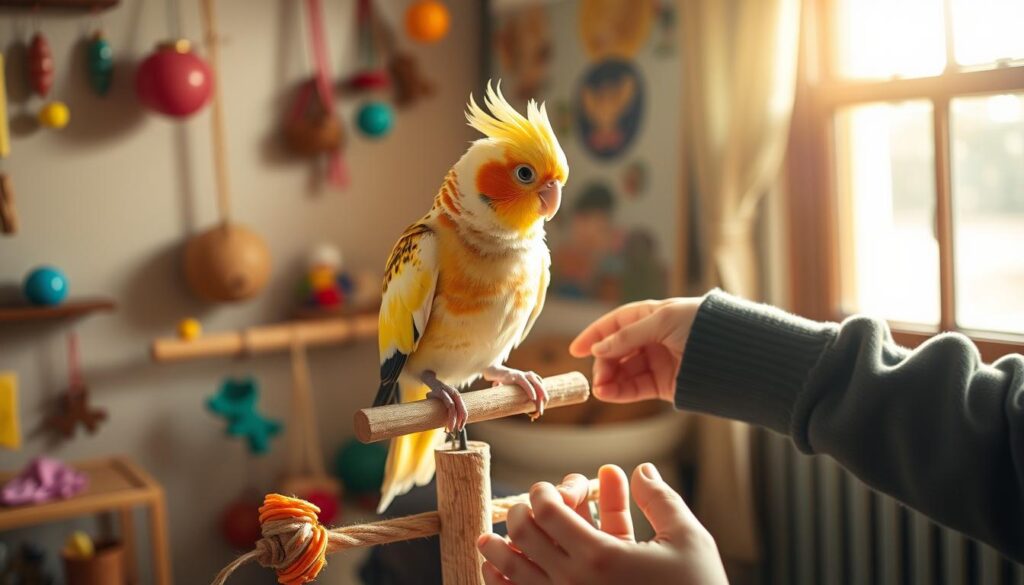
Training your cinnamon cockatiel is crucial for a strong bond. Use positive reinforcement to encourage good behavior. This makes training fun for both you and your bird. Regular interaction builds trust and friendship.
Effective Techniques for Bonding
To create a strong bond, try these methods:
- Positive Reinforcement: Give treats when your bird does something good. This makes them want to do it again.
- Regular Interaction: Spend time with your cockatiel every day. Talk to them, let them sit on your shoulder, or give them head scratches.
- Trust-Building Exercises: Get close to your bird slowly. Let them get used to you before starting training. Keep the first sessions short.
Basic Commands and Tricks
Start with simple commands like ‘step up’ for your training. As your bird gets better, teach fun tricks. Keep training sessions short and positive, lasting 5 to 10 minutes.
Using different training methods helps your bird learn faster. Teach them basic commands and fun tricks. This not only strengthens your bond but also makes your cockatiel happy4.
Common Health Problems in Cinnamon Cockatiels
It’s important to know about the common health problems cockatiels face to keep them healthy. Cinnamon cockatiels can get sick with respiratory diseases and not get enough nutrients. Spotting illness signs early helps you act fast.
Signs to Watch For
As a caring owner, watch for signs of illness in your cinnamon cockatiel. Look out for:
- Lethargy
- Weight loss
- Ruffled feathers
- Excessive feather plucking
Spotting these symptoms early is key for quick vet visits. Young cockatiels often face nutritional problems like calcium deficiency. This can cause weakness or stress, so it’s important to get bird health monitoring to meet their needs.
Preventative Health Care Tips
To keep your cinnamon cockatiel healthy, regular bird check-ups are a must. Here are some tips for preventative health care for cinnamon cockatiels:
- Give them a balanced diet full of protein, vitamins, and minerals.
- Keep their living area clean.
- Make sure they get to socialize and exercise.
- Watch for illness signs often.
It’s crucial to keep their environment stress-free and safe for play. Regular vet visits are key for health care. They help catch problems early. Owners need to be extra careful with mutation-affected cockatiels, as they need more care17. Following these health tips can greatly lower the risk of illness, ensuring your pet lives a long, healthy life.
Where to Buy or Adopt a Cinnamon Cockatiel
Adopting a cinnamon cockatiel can be done in several ways. It’s important to know the difference between buying from breeders and pet stores. This choice affects the bird’s health and your experience as a bird owner.
Reputable Breeders vs. Pet Stores
Reputable breeders are often the best place to find cinnamon cockatiels. They know a lot about the birds and care for them well. Pet stores might not have the same knowledge, making it hard to learn about the birds.
It’s key to check if any pet store you consider is known for good animal care. Breeders cost between $130 to $160 for a cinnamon cockatiel. You also need to budget for supplies, which can cost $10 to $25 a month18.
Choosing the Right Bird
When picking a cinnamon cockatiel, watch how they act. Look for clean feathers, bright eyes, and energy. Ask about their background and how they’ve been socialized.
Spending time with the bird helps you see if you’re a good match. It’s important to adopt healthy birds for a happy relationship. Places like Florida Parrot Rescue have birds like Chiri and Monti ready for adoption available for adoption18.
| Aspect | Breeders | Pet Stores |
|---|---|---|
| Knowledge about birds | High | Variable |
| Bird’s history | Detailed | Limited |
| Price range | $130 – $160 | Varies by type |
| Monthly care costs | $10 – $25 | Similar costs |
Cockatiels are very popular pets in the U.S. They are loving and fun to be around19. They live for 16-25 years, so choosing the right bird is a big decision. It’s not just about the cost but also about caring for them for a long time.
Conclusion
Starting your journey with a cinnamon cockatiel will bring you joy and amazing moments. These birds are not just beautiful, but also friendly and fun to be around. They grow to be 10 to 12.5 inches tall and weigh 75 to 130 grams, making them great pets for families2021.
Learning about their diet, social needs, and environment is key. A well-cared-for cinnamon cockatiel can live up to 15 years, with some living up to 35 years2021. With the right care, they become loving and enriching companions.
As you begin this journey, remember the bond you’ll form with your cockatiel is rewarding. Always be patient, understanding, and loving. This will help your bird thrive and become a beloved family member.
FAQ
What is a cinnamon cockatiel?
How do I care for a cinnamon cockatiel?
What should I include in my cinnamon cockatiel’s diet?
What makes cinnamon cockatiels unique?
How long do cinnamon cockatiels live?
Can cinnamon cockatiels be trained easily?
What are common health problems to watch for?
How can I find a cinnamon cockatiel to adopt or buy?
What are some notable mutations of the cinnamon cockatiel?
What is the importance of socialization for a cinnamon cockatiel?
Source Links
- https://animal-world.com/cinnamon-cockatiel/ – Cinnamon Cockatiel: Personality, Facts, Care, & Pictures | Animal World
- https://animal-world.com/cinnamon-pearl-cockatiel/ – Cinnamon Pearl Cockatiel | Animal World
- https://pangovet.com/pet-breeds/birds/cinnamon-pearl-cockatiel/ – Cinnamon Pearl Cockatiel: Info, Pictures, Personality & FAQ | PangoVet
- https://birdspal.com/cinnamon-cockatiel-complete-care-guide/ – Cinnamon Cockatiel: Complete Care Guide and Essential Tips
- https://www.hepper.com/cinnamon-cockatiel/?srsltid=AfmBOooY6_QonRbU1ytLMO6WUHNfmi4NI5ByWgHnw5fAcFbQxmpOVTFV – Cinnamon Cockatiel: Pictures, Facts, & History | Hepper
- https://thepetsnutrition.com/cinnamon-cockatiel/ – Cinnamon Cockatiel Breed Complete Guide in 2024 – The Pets Nutrition
- https://petadvocacy.org/wp-content/uploads/2022/01/Cockatiel-Care-Sheet.pdf – PDF
- https://myrightbird.com/articles/a-guide-to-understanding-and-caring-for-your-pet-cockatiel – A Guide to Understanding and Caring for Your Pet Cockatiel | myBird
- https://birdtricksstore.com/blogs/birdtricks-blog/homemade-cockatiel-seed-and-grain-mix-recipe?srsltid=AfmBOoobbnH8EdX7MV27KcB4UshBNG2YjcQt9uNIxb9HXcnpT48Hwtzi – Homemade Cockatiel Seed and Grain Mix Recipe
- https://beautyofbirds.com/healthy-cockatiel-food-list/ – Cockatiel Food List – Diet For Healthy Cockatiels
- https://vcahospitals.com/know-your-pet/cockatiels—general-information – Cockatiels – General Information | VCA Animal Hospitals
- https://www.cockatielcottage.net/basics.html – Cockatiels as Pets, Basic Information on daily care of a cockatiel, general characteristics of a cockatiel, intelligence, disposition, personality, companionship qualities, ability, singing, talking, performing tricks, and history, cockatiels and allergies, birds, cockatiels and asthma
- https://en.wikipedia.org/wiki/Cockatiel – Cockatiel
- https://kmbreeding.weebly.com/cockatiel-mutations.html – Cockatiel Mutations
- http://www.multiscope.com/hotspot/articles/cockatiel_genetics.htm – Cockatiel Genetics
- https://www.acstiels.com/sex-linked-and-recessive-mutations – Sex-linked and Recessive Mutations | acstiels
- https://www.thebirdclinic.com/storage/app/media/cockatiel-concerns-2024.pdf – ————————————————————————–
- https://pangovet.com/pet-lifestyle/birds/cockatiel-cost/ – How Much Does a Cockatiel Cost? (2024 Price Guide) | PangoVet
- https://pangovet.com/pet-breeds/birds/cinnamon-cockatiel-bird/ – Cinnamon Cockatiel Bird Species: Info, Personality, Pictures, Diet & Care Guide | PangoVet
- https://www.hepper.com/cinnamon-pearl-cockatiel/?srsltid=AfmBOooEg8R-9YJB10_s9h4LGsvvPfhjnlDjSYy9l2dbjpoj-Bzdfiww – Cinnamon Pearl Cockatiel: Facts, Origin & History (With Pictures) | Hepper
- https://thepetsnutrition.com/cinnamon-pearl-cockatiel/ – Cinnamon Pearl Cockatiel Breed Complete Guide in 2024 – The Pets Nutrition


